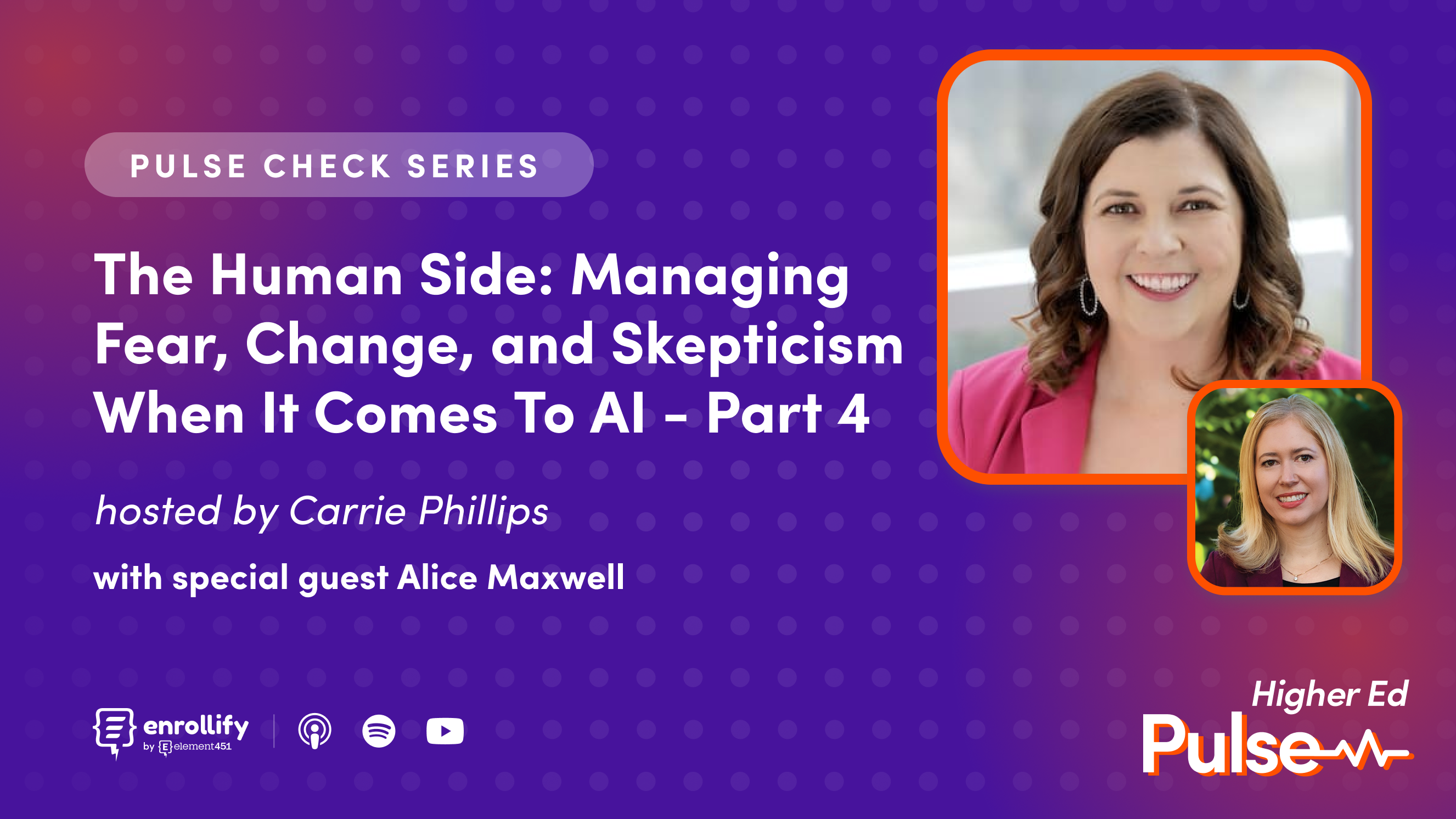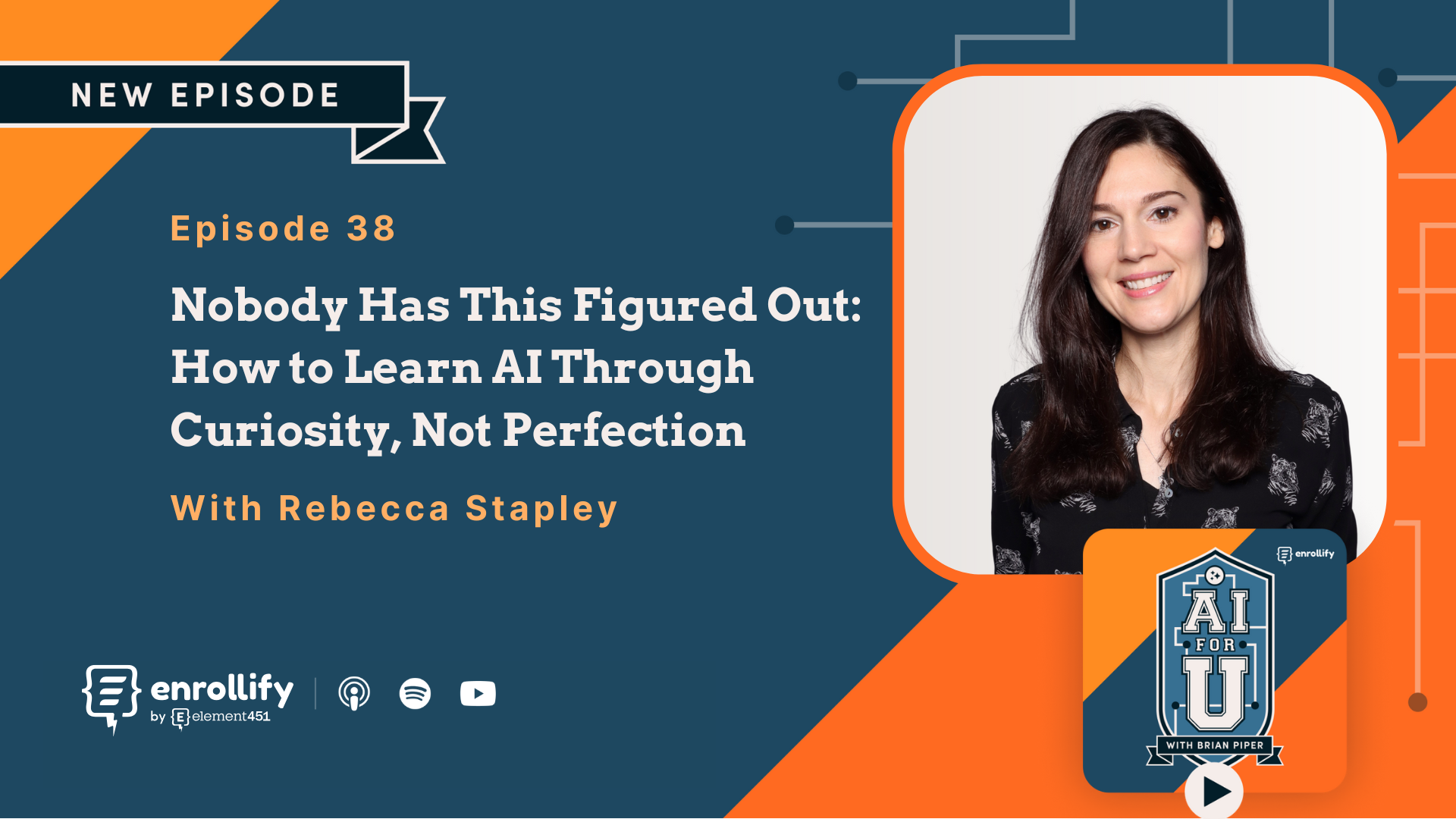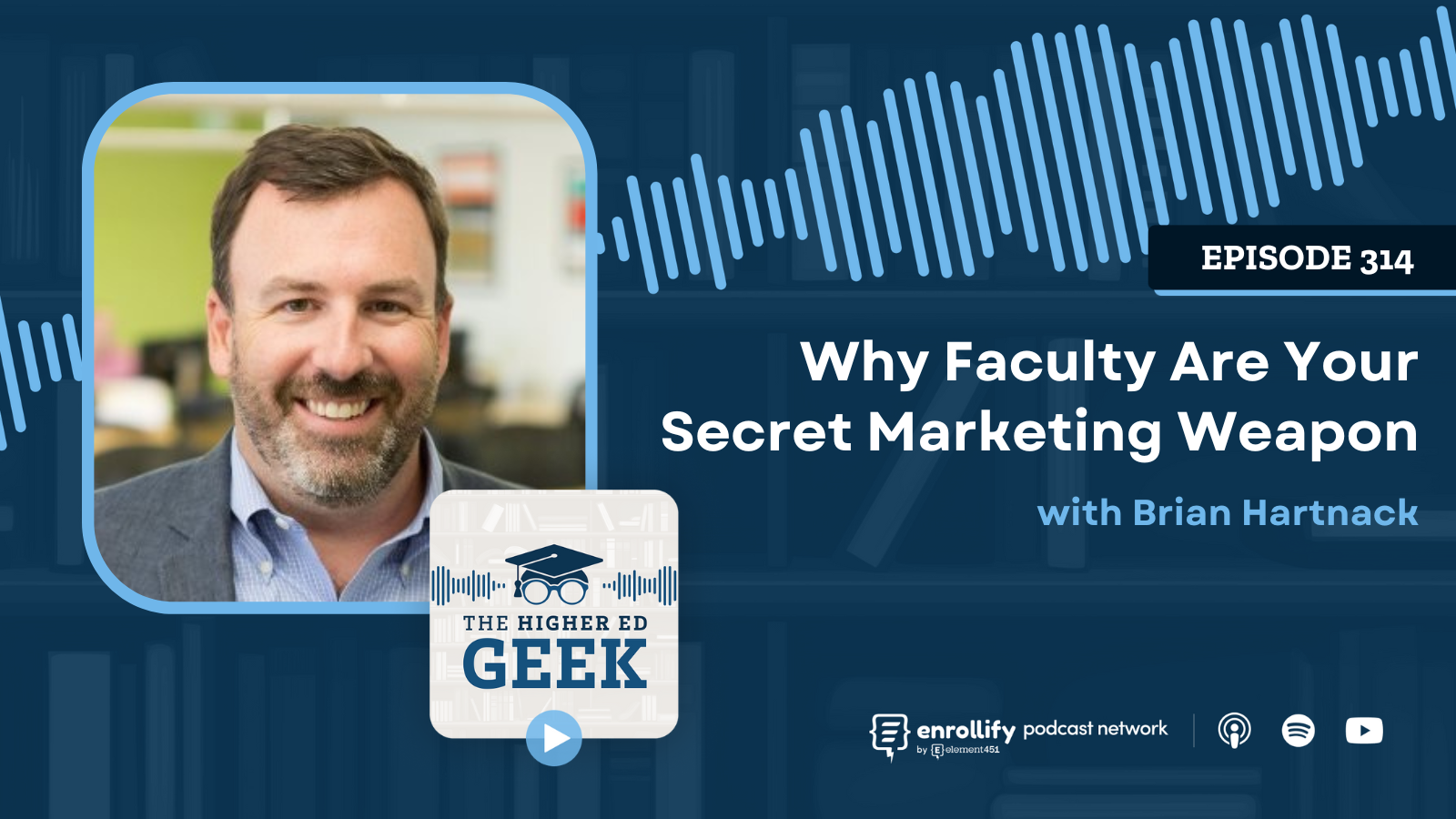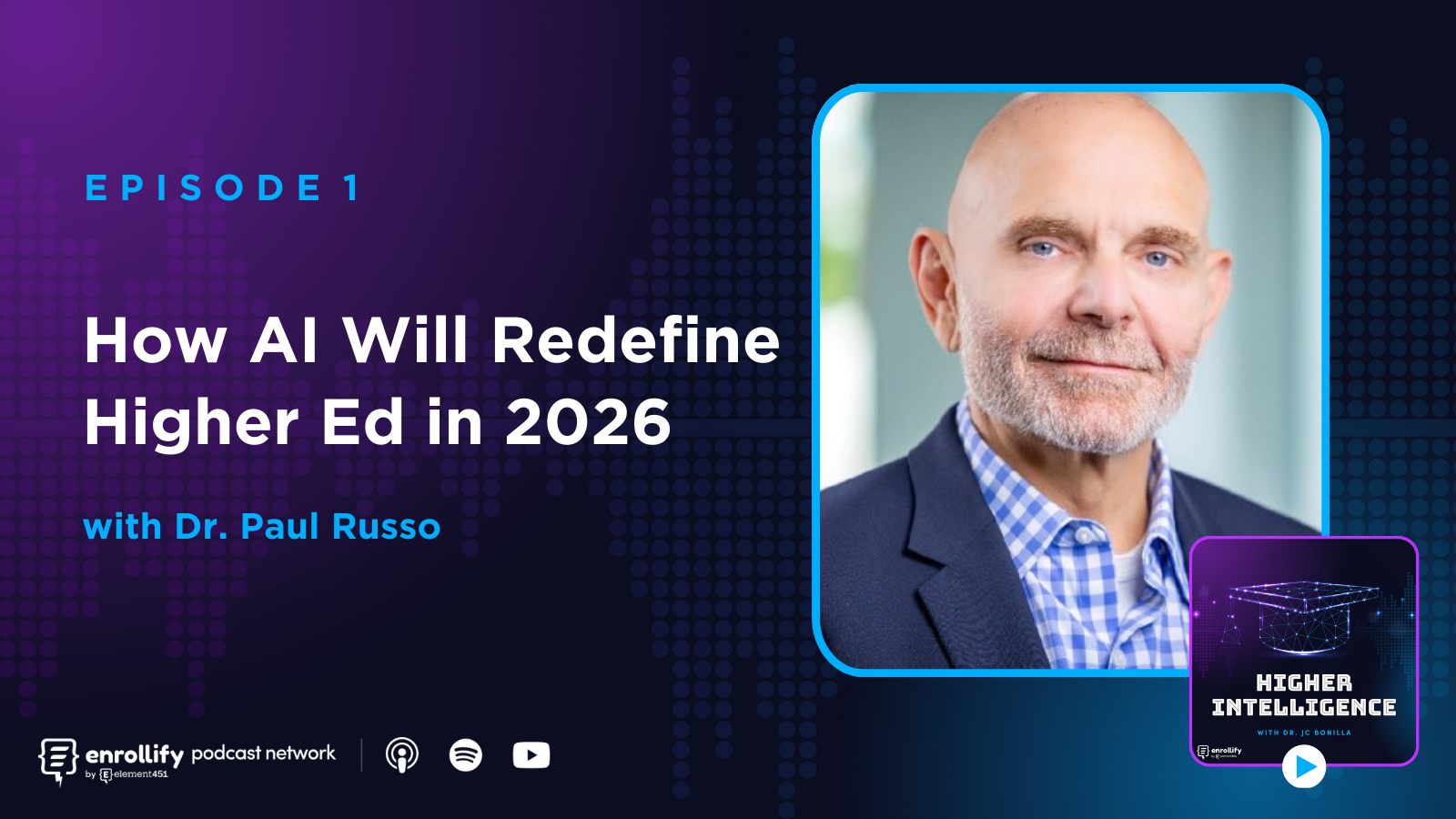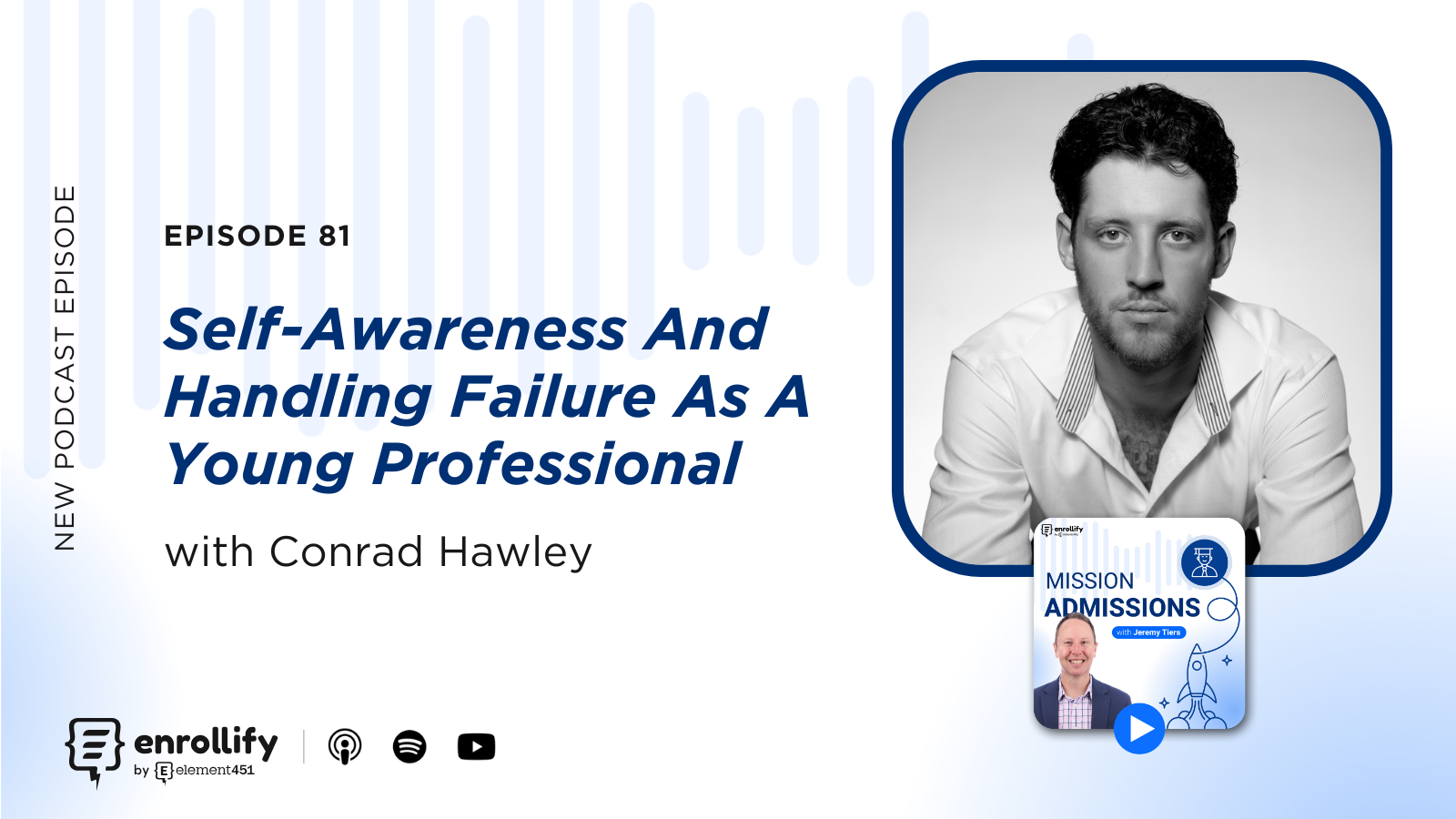About the Episode
We’re kicking off this year’s season with Adam joining the show to share a unique take on how to foster more innovation in higher education; disrupt the institutional accreditation process. He details the research he’s done for his new book, The Caging of the American Mind, as well as the history around accreditation in the US. This is a fascinating and lively conversation you won’t want to miss!
Key Takeaways
- Accreditation is a Barrier to Innovation: The current accreditation system prevents the creation of new colleges, stifling competition, creativity, and access to affordable education.
- The Ice Age of Higher Education: Fewer new institutions have been founded in the past decade than in the 1840s, despite the growing demand for higher education.
- New Colleges Could Address Modern Needs: Allowing new institutions to emerge could lead to specialized programs like climate crisis colleges, LGBTQ+ colleges, or Asian American-focused institutions that better serve underrepresented communities.
- Affordability and Efficiency: Emerging colleges could offer innovative models like three-year bachelor’s degrees at dramatically lower costs, solving the student debt crisis.
- Evidence-Based Education: New institutions would incorporate modern, research-backed teaching methodologies to improve learning outcomes.
Episode Summary
Why does the current accreditation system hinder progress in higher education?
Adam Braun, an expert in educational innovation and the creator of the Make School program, argues that the accreditation process is fundamentally flawed. While accreditation was originally established to ensure quality, it has evolved into a gatekeeping system that blocks the creation of new colleges. This lack of competition has led to:
- Stagnation in educational innovation.
- Rising tuition costs without corresponding quality improvements.
- A decline in the number of new institutions over the past 50 years.
Adam highlights that many of the country’s most prestigious institutions, like Harvard and MIT, were founded in a different era—one without these restrictive barriers.
What would happen if we allowed more new colleges to start?
If the system were reformed or removed, Adam envisions a renaissance in higher education:
- Affordability: New institutions could offer competitive, low-cost programs. For example, many emerging college models propose three-year bachelor’s degrees at tuition rates as low as $15,000 annually.
- Specialized Institutions: New colleges could focus on addressing modern challenges and underserved populations. Examples include:
- Climate crisis-focused colleges.
- LGBTQ+ and Asian American-focused institutions.
- Evidence-based educational models that enhance learning efficiency.
- Innovation: Opening the system would foster creative approaches to learning, such as modular curricula, online learning ecosystems, and interdisciplinary degrees tailored to workforce demands.
Adam explains that such change would not harm existing institutions but instead challenge them to improve. Competition would stimulate legacy colleges to adopt innovative practices, creating a “rising tide” that lifts all boats.
How can accreditation be reformed or replaced?
Adam proposes practical solutions to overcome the current system’s barriers. Key options include:
- Eliminating Accreditation as a Requirement: By adopting a dyad system—where state licensure and federal oversight are sufficient—institutions could bypass the traditional accreditation process.
- Creating Alternative Accrediting Bodies: New, independent groups could set modern, flexible standards focused on quality and innovation.
- Maintaining Transparency: Institutions would still be required to disclose outcomes and financial practices, ensuring students make informed choices.
Adam argues that removing accreditation requirements would unleash potential energy in the higher education space, leading to a surge in new, innovative colleges that better meet societal needs.
Unlocking the Future of Higher Education
The future of higher education depends on removing outdated systemic barriers and creating space for new ideas to thrive. Adam Braun’s vision is clear: allow educators, innovators, and communities to start new institutions that address modern challenges, offer affordable pathways to education, and utilize evidence-based teaching practices.
By opening the door to new colleges, we can:
- Lower tuition costs and reduce the student debt crisis.
- Empower underrepresented communities with institutions tailored to their needs.
- Foster innovation that enhances the quality and relevance of education.
If you’re ready to dive deeper into this topic, check out Adam’s book, The Caging of the American Mind, and listen to the full episode for more insights into how we can reimagine the future of higher education.







-1.avif)

